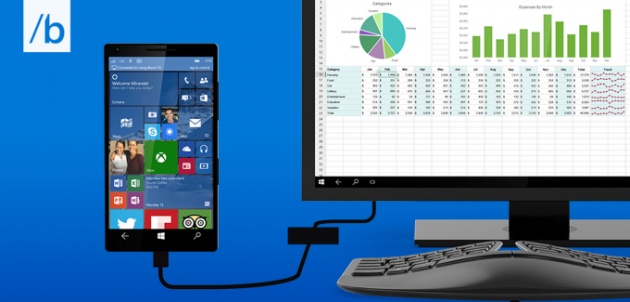
Microsoft just demonstrated one of the intriguing possibilities from its single platform/multiple form factors approach for Windows 10: the ability to use your phone as your desktop computer.
In contrast to Apple’s “Continuity,” which aims to make moving between phone, tablet and desktop seamless, Microsoft’s Continuum instead has the phone you’re using adapt its interface depending on the context you’re using it.
In an on-stage demo, Microsoft’s Joe Belfiore connected a phone to a monitor, keyboard and mouse, and instantly the UI he was using adapted to the new inputs and outputs. While the operating system interface we saw on screen didn’t look exactly like Windows 10 on a laptop or desktop computer, the applications shown (especially PowerPoint) did. Instead of making minor adjustments to a presentation using a 5-inch screen, you can simply connect to an HDMI-compatible monitor and have all the space and tools you would on a full PC.
Belfiore pointed out that the feature really shines when apps have been built to scale across form factors, so whether or not this ends up being a feature most would want to take advantage of really depends on developers committing their efforts to Windows 10.
Of course, phone hardware isn’t built to deliver full-on desktop interfaces (just ask Motorola!). That being the case, Belfiore said the feature will run on future devices — a hint that Continuum will be one of the selling points Microsoft is going to push for upcoming Lumia devices.



